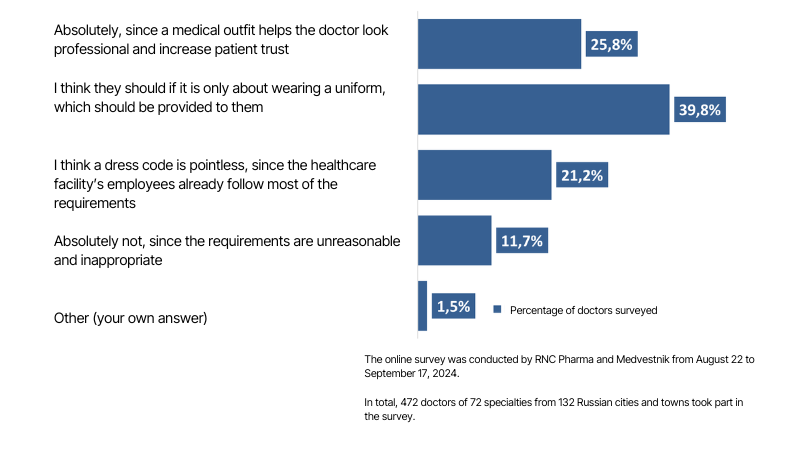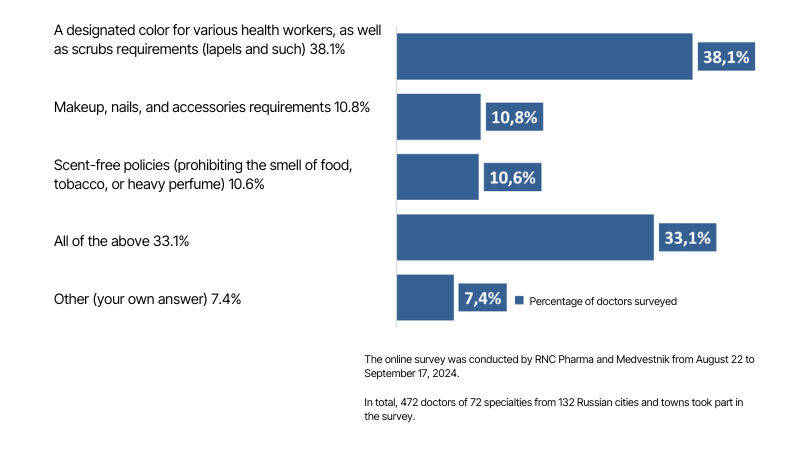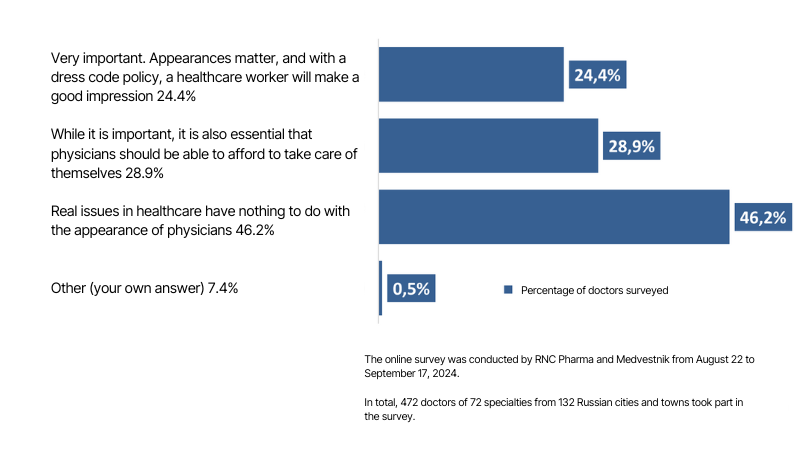Study by RNC Pharma and Medvestnik: 66% of Russian Doctors Support Dress Code Policies, 46% Think No Dress Code Will Not Help Solve Real Issues in Healthcare
Most Russian physicians believe that health facilities should have a dress code policy, according to a survey conducted by the RNC Pharma analyst company and the Medvestnik platform for doctors. In particular, 25.8% of the respondents say a dress code policy is essential, since a medical outfit helps the doctor look professional and increase patient trust (Fig. 1). Another 39.8% are ready to support only uniform requirements given that it is provided by the hospital. Apparently, they are not ready to sacrifice makeup or accessories. Interestingly, there were not any statistically significant differences between age categories or genders; in matters of image, the doctors were surprisingly unanimous.
At the same time, 32.8% said they were against any kind of dress code, with 21.2% considering dress code policies pointless, since the healthcare facility’s employees already seem to follow most of the requirements. Another 11.7% are absolutely against any dress codes and consider them “unreasonable and inappropriate.” Those who chose to give their own answer said that while they might support a dress code policy, the healthcare facility should be the one establishing the guidelines instead of the government, since the clinic might have its own corporate look, or a proper attire for pediatricians might require certain colors.
Fig. 1. Should physicians adhere to a dress code?

We also asked the respondents which dress code requirements they considered unreasonable (Fig. 2). Most of the doctors, 38.1%, told us they were against setting a specific color for managers, physicians, mid-level practitioners, or junior medical staff. Another 10.8% consider the requirements for makeup, nails, and accessories to be unreasonable, and 10.6% are against a scent-free policy, which does not allow the doctor to smell of food, tobacco, or perfume. However, some of those who chose to give their own answer say that this requirement fits the existing etiquette, and any foreign odors can mask important clinical signs in the patient, preventing the physician from making the right diagnosis.
Fig. 2. Which dress code requirements do you consider unreasonable?

Most of the physicians, 53.3%, think it is necessary to work on the appearance of healthcare workers, and 24.4% consider this issue “very important”, since it helps form the public’s attitude towards healthcare and has a great influence on the impression of a healthcare facility’s employees (Fig. 3). Another 28.9% said that improving the image depends critically on the income level, since self-care is expensive. However, the most popular answer (46.2%) was as follows: “Real issues in healthcare have nothing to do with the appearance of physicians.” It is difficult to disagree with this statement, even though more than half of the respondents admit how important the appearance of healthcare workers is.
Fig. 3. How important is it to work on the appearance of healthcare workers, in your opinion?

 Рус
Рус




